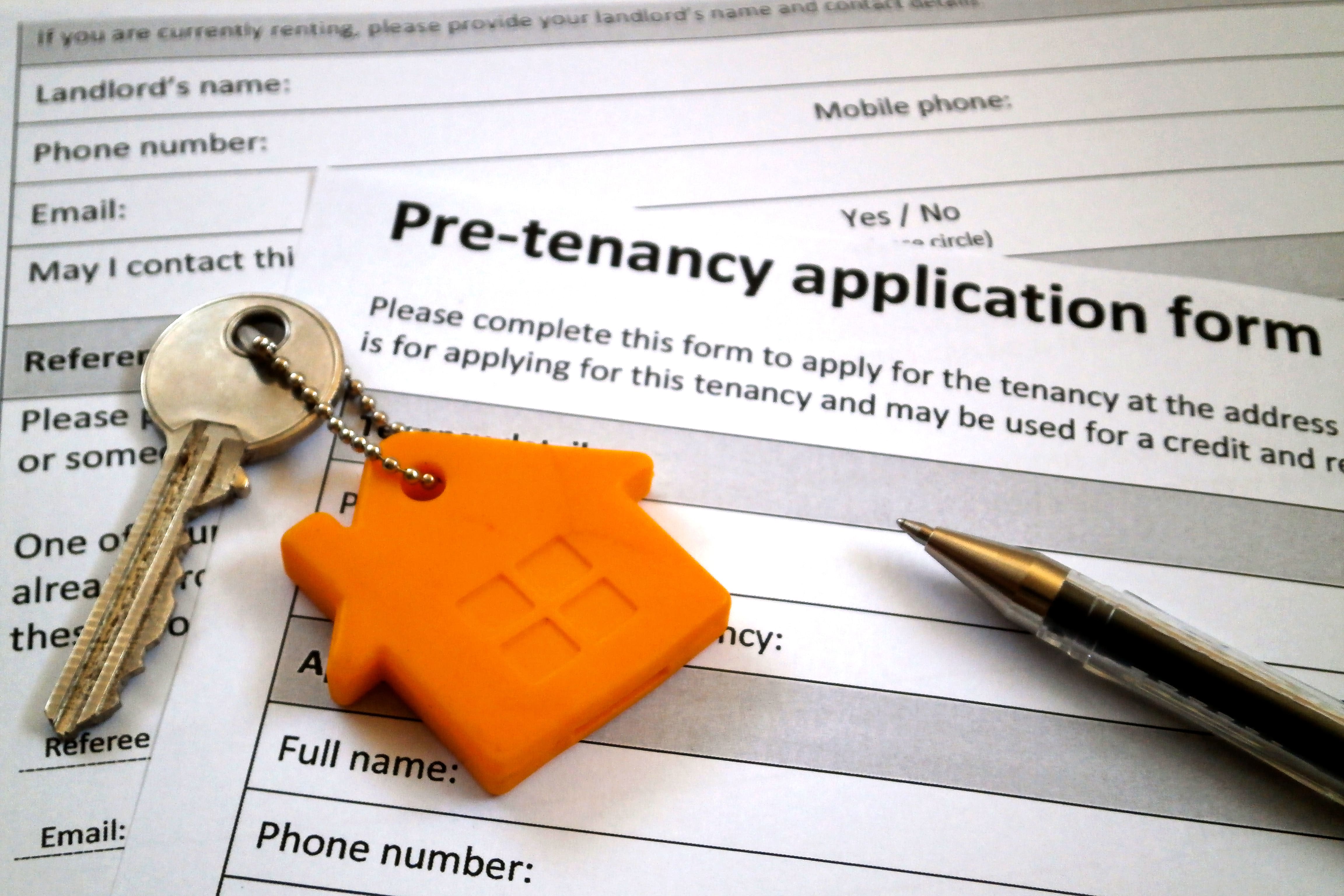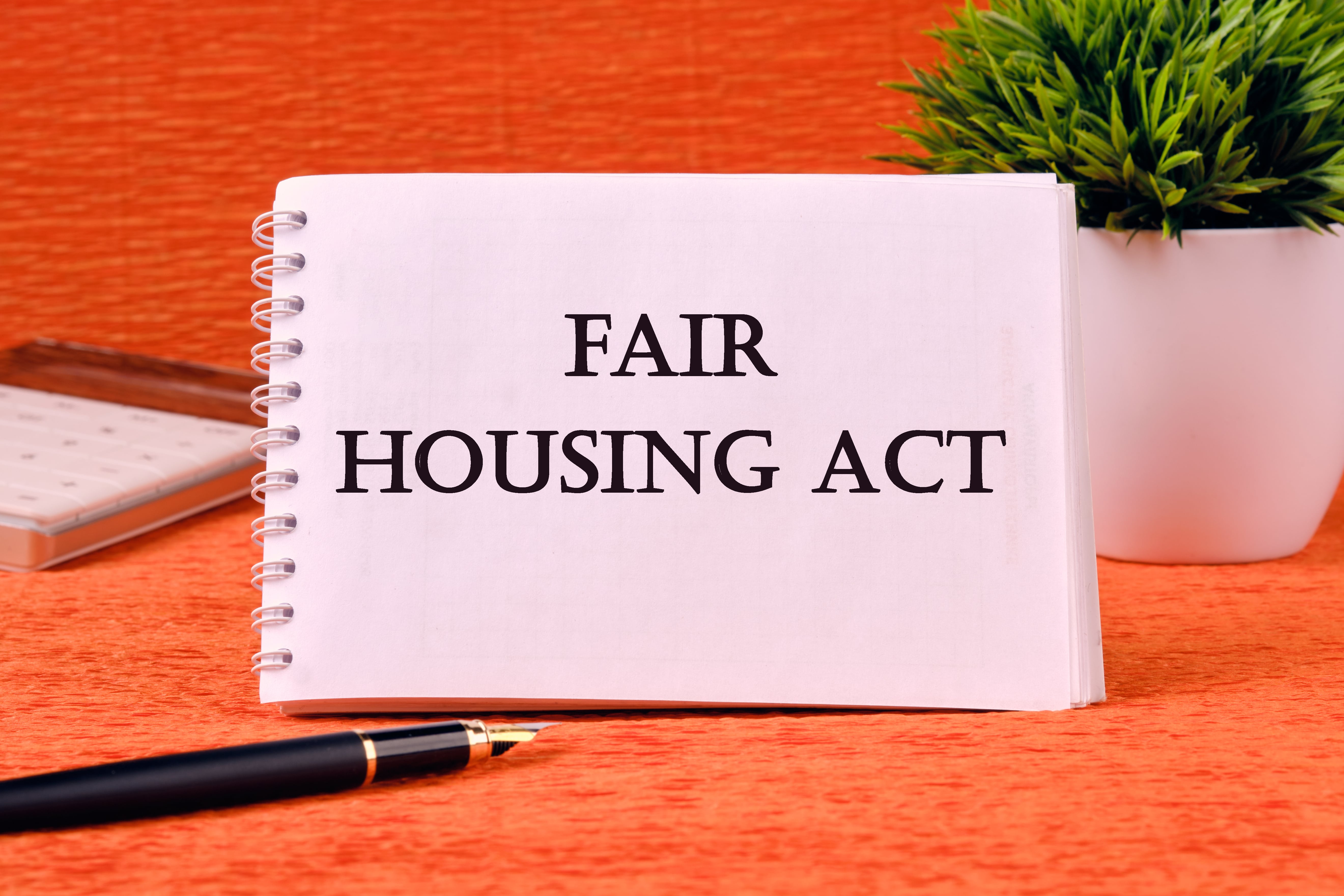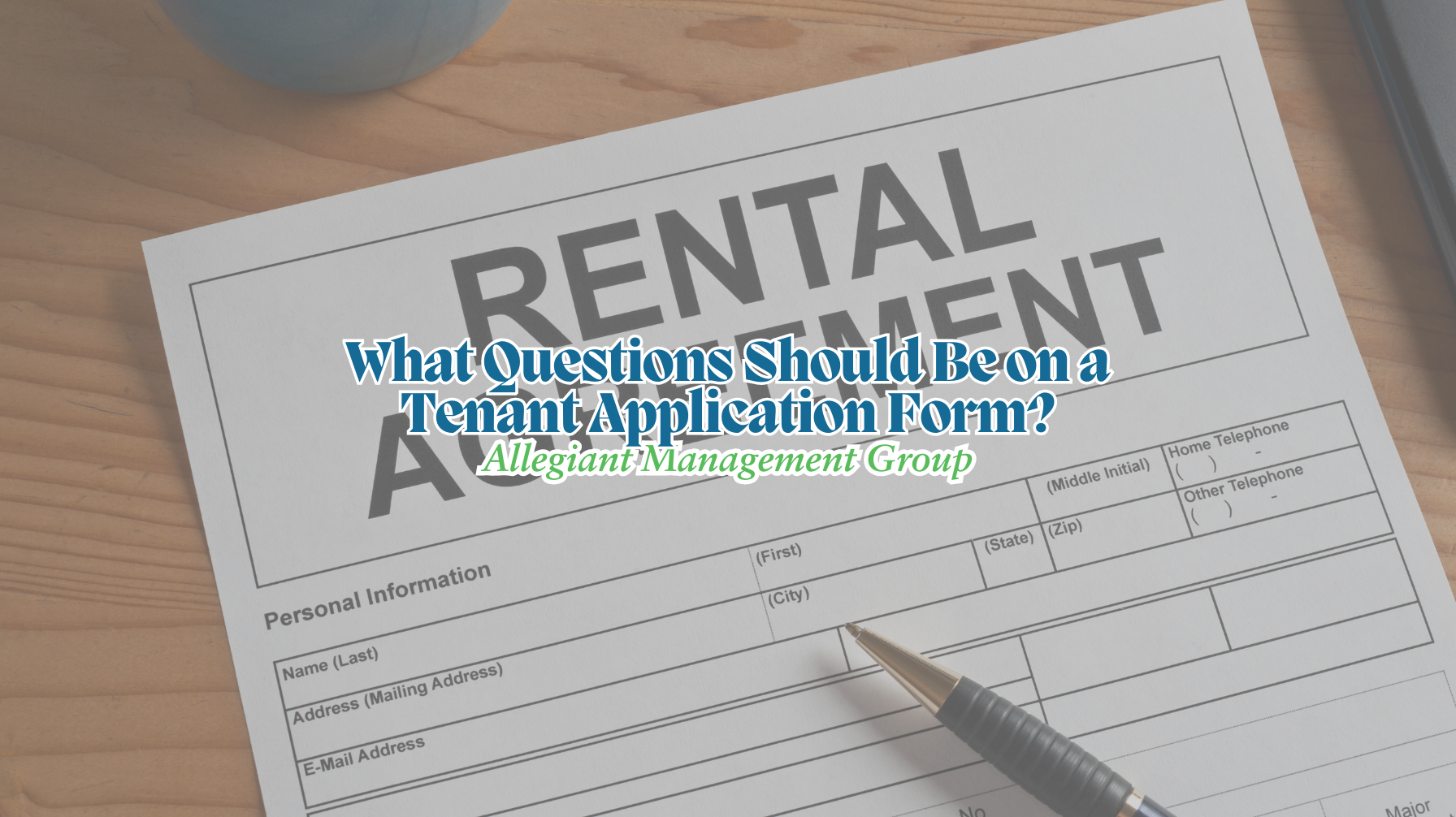Why a Tenant Application Form Matters

Did you know that over 44% of Kissimmee’s population are renters? With so many prospective tenants searching for homes, you’d think filling vacancies would be easy. However, not all applicants make great tenants.
A well-structured rental application form is essential for screening applicants, minimizing risks, and finding reliable renters who will pay rent on time, take care of the property, and follow lease agreements.
In this guide, we’ll cover essential questions every landlord should include on their rental application to attract qualified tenants while complying with fair housing laws.
Key Questions to Include on a Tenant Application Form

1. Do You Have Pets?
Why Ask About Pets?
If your rental listing does not clearly state whether pets are allowed, you may receive applications from both pet owners and non-pet owners.
Asking about pets upfront helps you:
- Screen for pet-friendly properties
- Ensure compliance with pet policies
- Avoid damage from unauthorized pets
What to Include on the Application
- Do you have pets? (Yes/No)
- If yes, what type and breed?
- How many pets do you own?
- What is the pet’s weight and age?
- Is your pet house-trained?
- Can you provide pet references from previous landlords?
Pro Tip:
If you allow pets, consider charging a pet deposit or pet rent to cover potential damages. You cannot charge fees, deposits, or rent to service animals.
2. How Many People Will Live in the Unit?
Occupancy Limits & Fair Housing Laws
It’s reasonable to ask how many people will be living in the rental unit, but be careful—you cannot discriminate against families with children.
The HUD occupancy standard suggests two people per bedroom, but local laws may vary. Always check state and federal regulations before setting occupancy limits.
What to Include on the Application
- How many adults will live in the rental?
- How many children will live in the rental?
- Names and ages of all occupants
- Will anyone be moving in or out during the lease term?
3. How Long Have You Lived in Your Current Rental?

What This Question Reveals About Tenants
A tenant’s rental history gives you insight into:
- Stability & reliability
- Whether they pay rent on time
- Their relationship with their current landlord
Long-term tenants who have lived in the same rental for years may be more responsible than applicants who frequently move.
What to Include on the Application
- How long have you lived at your current address?
- Why are you leaving?
- Have you ever been evicted? (Yes/No)
4. When and Why Are You Moving?
Why This Question Matters
Understanding why an applicant is moving can reveal potential red flags, such as evictions, lease violations, or disputes with previous landlords.
On the other hand, a job relocation, downsizing, or looking for a better neighborhood are valid reasons for moving.
What to Include on the Application
- What is your reason for moving?
- When do you plan to move in?
- Are you breaking your current lease? (Yes/No)
What Can’t a Landlord Ask on a Rental Application?

It’s crucial to comply with Fair Housing Laws and avoid discriminatory questions that could violate a tenant’s rights.
Landlords CANNOT Ask About:
- Race, ethnicity, or national origin
- Sexual orientation or gender identity
- Religion or political beliefs
- Disabilities or medical conditions
- Source of income (e.g., welfare, child support, disability payments)
Pro Tip:
If you’re unsure about what is legally permissible, consult with a property management company like Allegiant Management Group to ensure compliance with fair housing laws.
Create a Legally Compliant Tenant Application

Pro Tip: Get an Authorization to Release Form so you can gather information from previous landlords.
By including key questions on your tenant application and avoiding discriminatory practices, you can attract reliable tenants while protecting yourself legally.
Need help managing your rental property? At Allegiant Management Group, we handle tenant applications, screenings, lease agreements, and property management services to ensure you find the best tenants for your property. Contact us today to get expert property management support!
Frequently Asked Questions (FAQs): Tenant Application Questions
What should a landlord include in a rental application?
A rental application should include:
- Personal Information (name, contact details, SSN)
- Employment & Income Details (employer, salary, job title)
- Rental History (previous addresses, landlord contacts)
- References (professional or personal)
- Consent for Background & Credit Checks
Can a landlord ask about a tenant’s income source?
Yes, a landlord can ask about a tenant’s income source to verify financial stability. However, they cannot discriminate based on lawful income sources, such as disability benefits or housing vouchers, under Fair Housing laws. Some states have additional protections restricting income-related inquiries.
What disqualifies a tenant from renting?
A tenant may be disqualified for:
- Poor Credit History (low score, unpaid debts)
- Insufficient Income (not meeting rent-to-income ratio)
- Eviction History (past lease violations)
- Criminal Background (violent or drug-related offenses)
- False Information (misrepresenting income or rental history)
Should landlords require a credit check?
Yes, landlords should require a credit check to assess a tenant’s financial responsibility. A credit report reveals payment history, outstanding debts, and potential red flags like bankruptcies or evictions. This helps landlords reduce the risk of late payments or lease defaults.
How can Allegiant Management Group help with tenant screening?
Allegiant Management Group assists with tenant screening by conducting background checks, credit reports, rental history verification, and income validation. Their process helps landlords identify reliable tenants, reducing the risk of late payments, evictions, and property damage.
Can I ask for a tenant’s social security number?
Yes, landlords can request a tenant’s Social Security number (SSN) for background and credit checks. However, ensure compliance with privacy laws and securely handle sensitive data. Offering alternative verification methods, like an ITIN or third-party screening service, can also protect tenant information.
Why is a rental application form important for landlords?
A rental application form helps landlords screen tenants by collecting essential details like income, rental history, and references. It ensures informed leasing decisions, reduces the risk of late payments or evictions, and protects property investments by verifying tenant reliability.
How do I verify a tenant’s income on an application?
Verify a tenant’s income by requesting pay stubs, tax returns, or bank statements. Contact their employer for confirmation or use third-party verification services. Ensure the income meets the required rent-to-income ratio, typically three times the monthly rent, to assess financial stability.
Can a landlord deny an application based on credit score?
Yes, a landlord can deny an application based on a low credit score if it indicates financial risk. However, decisions must comply with Fair Housing laws and be based on consistent criteria. Some landlords offer alternatives like higher deposits or co-signers for borderline applicants.
Can I charge an application fee, and is it refundable?
Yes, landlords can charge a rental application fee to cover background and credit checks. Fees are typically non-refundable, but laws vary by state. Clearly disclose the fee amount and policy upfront to avoid disputes and ensure compliance with local regulations.
Can I deny an applicant based on a past eviction?
Yes, landlords can deny an applicant for a past eviction if it indicates rental risk. However, decisions must comply with Fair Housing laws and be applied consistently. Consider factors like time since the eviction, current financial stability, and references before making a final decision.
Disclaimer: This article is for informational purposes only and does not constitute legal advice. Landlords should consult a legal professional or property management expert to ensure compliance with local, state, and federal laws.
Blog Updated: 03/04/2025



